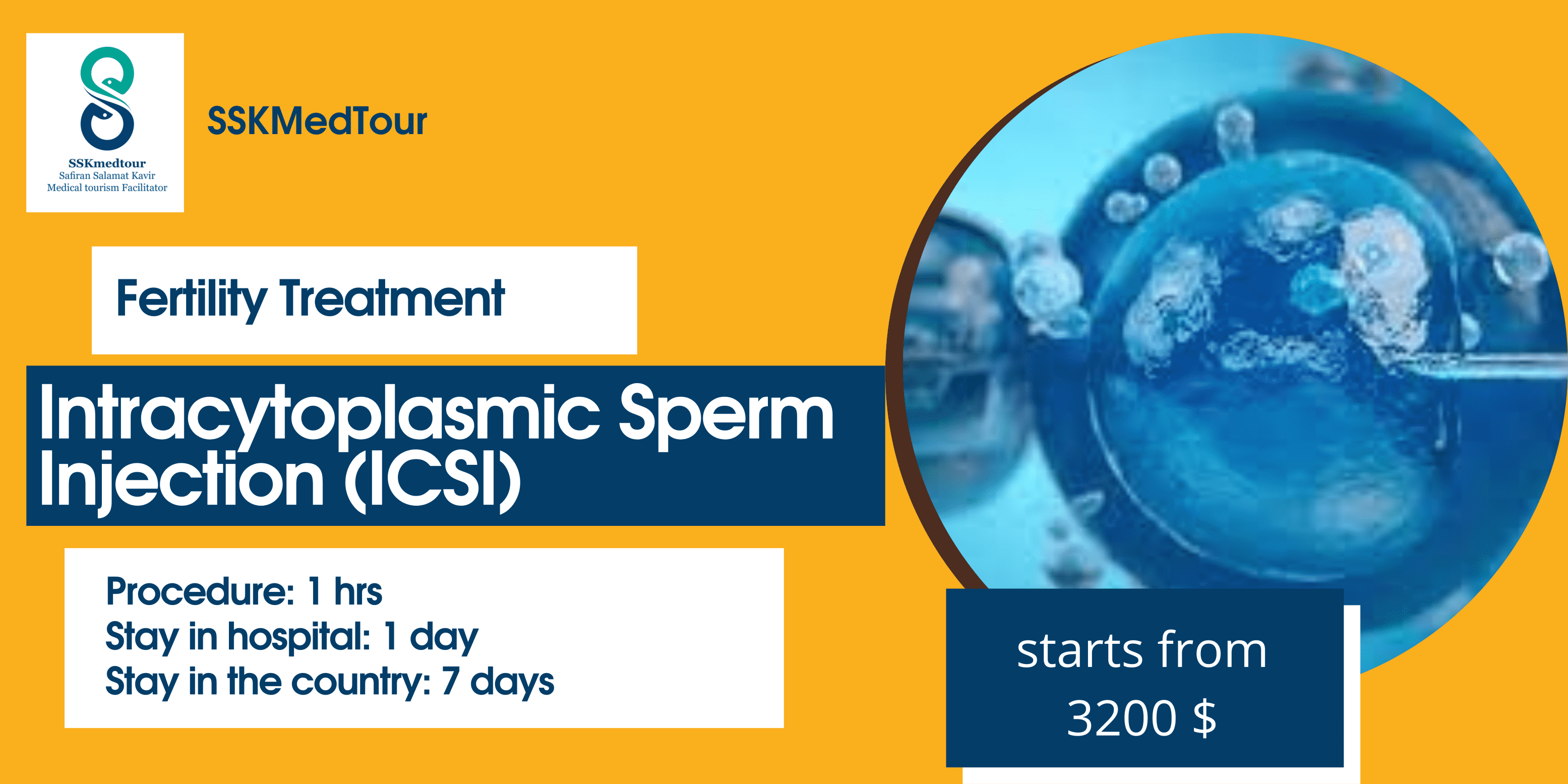

Overview
ICSI is a type of IVF treatment that addresses severe cases of male infertility. a single healthy sperm is injected directly into each mature egg. ICSI is often used when semen quality or number is a problem or if fertilization attempts during prior in vitro fertilization cycles failed.
Who is the candidate for ICSI?
Intracytoplasmic sperm injection is recommended for couples who have been diagnosed with male fertility issues such as low sperm count, low sperm morphology or motility, anti-sperm antibodies, or have previously had a vasectomy or unsuccessful vasectomy reversal. We can also use this technique for couples who have experienced poor or no fertilization rates using standard IVF.
Preparation Before Treatment
During the first consultation, the doctor will review the medical and medication history of the couple. They are advised to undergo certain tests to determine any infectious diseases, such as HIV. A semen analysis is recommended for the male partner. Additionally, sperm antibody testing, spermatozoa function test are also recommended to identify the reason behind male infertility. However, certain lifestyle modifications, such as avoiding consumption of alcohol, smoking cessation, and reducing caffeine intake may help in achieving success with ICSI.
About Procedure
ICSI is carried along with a standard IVF treatment. In this procedure, the matured eggs are retrieved from the woman’s uterus and are held in a specialized pipette. During the day of the procedure, the doctor will collect the semen sample and separate live sperms from the dead sperms. Now, by using a delicate, sharp, and hollow needle, the doctor will pick a single live sperm and inject it inside the egg. After insemination (a process of inserting a sperm inside the egg), the egg is kept in an incubator and is monitored for fertilization. Once after fertilization, the embryo is transferred in the woman’s uterus.
Post-Procedure Care
After the embryo transfer, the woman needs to rest for the remaining day. Complete bed rest is not required unless advised by your doctor. In most cases, the woman can get back to normal activity from the next day. Prescribed medicines must be taken regularly. A few days after the embryo transfer, the doctor will recommend a pregnancy test.
Recovery Tips
Follow the tips given below to have a successful pregnancy:
• Manage stress
• Have a healthy diet
• Do not lift heavyweights
• Avoid performing strenuous activities
• Avoid sexual intercourse after embryo transfer
• Avoid douching and hot baths
• Take the prescribed medicines
• Do not rest too much
FAQ
How successful is one cycle of ICSI?
ICSI itself is very successful at helping the sperm and the egg to fertilize. However, as in IVF, there are still many other factors affecting a successful pregnancy, including the age of the woman and whether she has any fertility difficulties herself. Success rates for ICSI tend to be very similar to IVF so we don’t publish separate statistics.
How safe is ICSI?
ICSI carries slightly more risks than some other fertility treatments, including a risk that eggs may be damaged when they’re cleaned and injected with sperm.
It has been suggested that the use of ICSI may also be associated with long-term health issues for the children born. However, we cannot prove this either way until we have more conclusive evidence.
Risks that may be associated with ICSI include:
certain genetic and developmental defects in a very small number of children born using this treatment; however, problems that have been linked with ICSI may have been caused by underlying infertility, rather than the treatment itself the possibility that a boy conceived as a result of ICSI may inherit his father’s, or donor’s, infertility (it is too early to know if this is the case, as the oldest boys born from ICSI are still in their teens). However, where there is a clearly defined genetic cause of male infertility, particularly if it is associated with the Y chromosome, it is highly likely that male offspring will inherit their father’s, or donor’s, infertility.
If you think this might apply to you, you may want to consider having genetic testing first to avoid the low sperm count being passed onto a male child. You’ll probably want to discuss the full implications of taking these tests with your clinic’s counsellor before going ahead. There are also all the usual risks that come with IVF treatment.


No comment